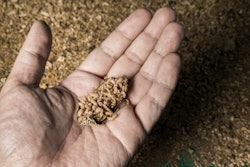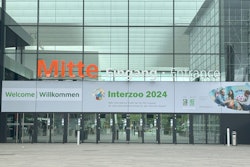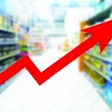
As inflation, in general and for pet food, slows in some markets like the U.S., consumers and others still may perceive that the economy is in a “stall pattern.” That’s a term used by Suzy Badaracco of Culinary Tides in a recent webinar, and it resonated with me because, while pet food prices in the U.S. and several other countries are no longer rising at the same level or rate as they were 18 to 24 months ago, they’re still substantially higher than just a few years ago.
For example, in the U.S., though pet food price increases have now slowed to the point of a slight decline year over year (YOY), prices are still 23% higher than they were in 2021 and 25% higher than in 2019, pre-pandemic. And in some countries, pet product inflation YOY is still in the high double digits; that’s especially true for countries in the European Commission.
How are pet owners dealing with this reality and ongoing difficulties? Recently, Yummypets, an online community of pet owners based in France, surveyed pet owners in the U.S., Canada, France and the U.K. to find out. The results indicate reasons for concern but also some positives.
French pet owners less likely to feel the pinch
It’s not clear if all the data, reported in the May 2024 issue of Pets International by contributor Paula Flores, pertains to pet food and other pet products or to the respondents’ spending in general. For instance, the survey showed 79% are fully aware of economic crises and their impact on the cost of living, and 85% say the crises affect their own financial situations. That seems to be a more general finding, not focused on pet care spending; I’m not sure about the 29% who said they have reduced their spending habits. Does that mean spending on everything or just on their pets?
There are some pet care-specific data, though: More pet owners in the U.S. and Canada have decreased spending on pet food, treats or toys, at 43% and 40%, respectively. “French consumers are the least likely to feel any impact, with 62% said they have even increased their spending,” Flores wrote. (Again, on everything or just on their pets?) That’s noteworthy considering that in April 2024, pet product inflation in France was 20% YOY.
“Pet parents in France are also the least likely to cut down on the amount of food they give their pets,” Flores continued. Overall, 82% of respondents said they are not reducing how much they feed their pets.
Yet nearly half, 48%, reported that the economic situation influenced their decisions about switching to lower-priced pet foods, with respondents in North America (U.S. and Canada combined) more likely, at 54%, to have considered switching or to have actually done so. The French respondents were least likely, with only 34% saying they considered switching brands.
In terms of types of pets, among all four countries, cat owners were more likely to consider switching, at 50%, with dog owners at 46%. Guinea pig and fish owners were in between — 47% — and hamster owners were the least likely to switch, at 21%. Rabbit owners were at 39%. Some small mammal owners are apparently very brand loyal!
Watch out for pet treats
The 54% of U.S. and Canadian pet owners who have at least considered switching to lower-priced brands is slightly higher than found in a survey of U.S. pet owners conducted in late 2023 by the Cleveland Research Group. In that survey, 15% of owners had considered switching to cheaper pet foods and had, in fact, done so, while 34% considered switching but decided not to. A majority, 51%, said they would never switch.
Does this indicate pet owners in the U.S. are becoming more price-conscious, even as pet food prices stabilize? It’s hard to say; maybe the consumers surveyed by Yummypets represent different demographics or perceive a still poor U.S. economy, despite a fair amount of evidence to the contrary; or maybe they personally are not reaping any benefits from economic improvements.
Regardless, this latest survey does indicate a “watch out” for what has been in recent years a fast-growing segment: pet treats. In all four countries, 24% of the pet owners said they are reducing their spending on these.
















